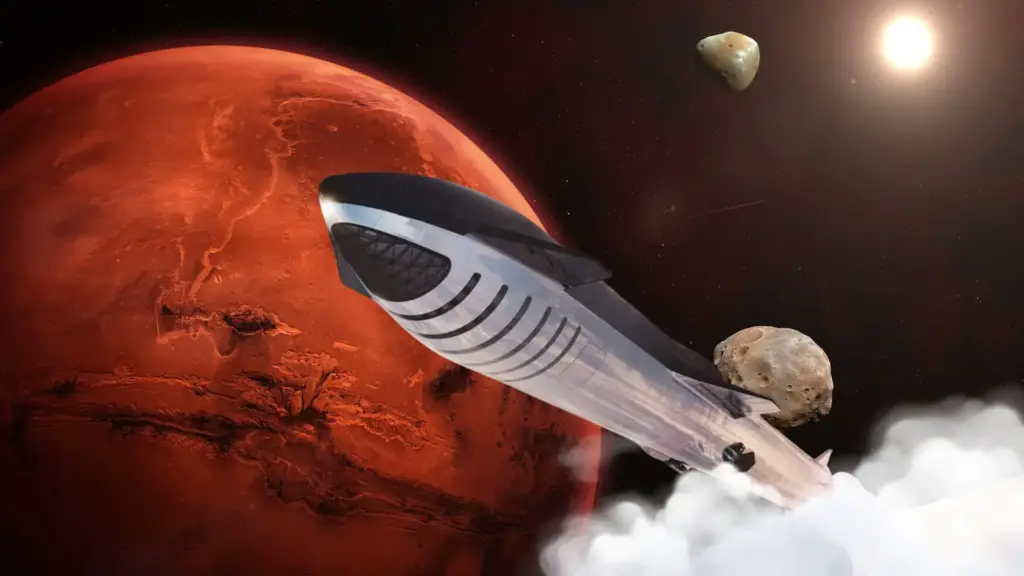
SpaceX’s Starship megarocket will start flying Mars missions just two years from now, if all goes according to plan. “These will be uncrewed to test the reliability of landing intact on Mars. If those landings go well, then the first crewed flights to Mars will be in 4 years,” SpaceX founder and CEO Elon Musk said via X on Saturday evening (Sept. 7), in a post that announced the bold new target timelines. (Earth and Mars align properly for interplanetary missions once every 26 months.)
“Flight rate will grow exponentially from there, with the goal of building a self-sustaining city in about 20 years,” Musk added in the same post. “Being multiplanetary will vastly increase the probable lifespan of consciousness, as we will no longer have all our eggs, literally and metabolically, on one planet.” Starship isn’t fully up and running yet. It has flown four test missions to date — in April and November of 2023 and March and June of this year. The giant vehicle has performed better on each successive flight, notching all of its major objectives on the most recent mission.
SpaceX is currently gearing up for Starship’s fifth flight, which could take place quite soon; the company has already performed test-fires with the Super Heavy and the Starship that will fly the mission. Flight five will feature some new and dramatic action — the first attempt to land Super Heavy back on the launch mount, an operation that will involve the use of the launch tower’s “chopstick” arms. As Musk often says about Starship flights, excitement is guaranteed.
https://www.space.com/spacex-starship-mars-launches-2026-elon-musk
Comment: This was a bold prediction even by Elon’s standards. Based on current progress with Starship and the amount of work needed to be done, I doubt Spacex will be able to meet that schedule, but it’s one hell of a motivating challenge to everyone involved in the project. I see it as something similar to Kennedy’s call to put a man on the Moon before the end of the decade.
In more SpaceX news, Polaris Dawn successfully launched earlier today. Keith Harbaugh provided a good space.com link on this mission. Even though this is a Crew Dragon mission, this private mission to the Van Allen Radiation Belts will contribute to the goal of reaching Mars with the Starship.
https://www.space.com/spacex-polaris-dawn-astronaut-mission-launch-success
https://www.cnn.com/2024/09/10/science/polaris-dawn-mission-spacex-launch/index.html

I have some doubts about that timeline too. I have been watching rocket development here for over 25 years and there is a lot of failure -some very spectacular- in the early stages. Musk wants to move his operation here to the Cape, but there is a lot of resistance building. From what I have read, the folks in Texas wants it gone too. So he will have his work cut out for him in many areas. I think his screw ups at Xitter also adds to the skepticism.
If the Biden administration has its druthers:
https://www.zerohedge.com/technology/bidens-strikes-spacex-starship-rocket-launch-delayed-months
According to this article, NASA is in pretty bad shape in some respects:
“Eminent officials say NASA facilities some of the “worst” they’ve ever seen
Buildings at Johnson Space Center in Houston are among the worst at any NASA facility.”
https://arstechnica.com/space/2024/09/eminent-officials-say-nasa-facilities-some-of-the-worst-theyve-ever-seen/
“A panel of independent experts reported this week that
NASA lacks funding to maintain most of its decades-old facilities,
could lose its engineering prowess to the commercial space industry,
and has a shortsighted roadmap for technology development.
“NASA’s problem is it always seems to have $3 billion more program than it has of funds,”
said Norm Augustine, chair of the National Academies panel chartered to examine the critical facilities, workforce, and technology needed to achieve NASA’s long-term strategic goals and objectives.
Augustine said a similar statement could sum up two previous high-level reviews of NASA’s space programs that he chaired in 1990 and 2009.
But the report released Tuesday put NASA’s predicament in stark terms.”